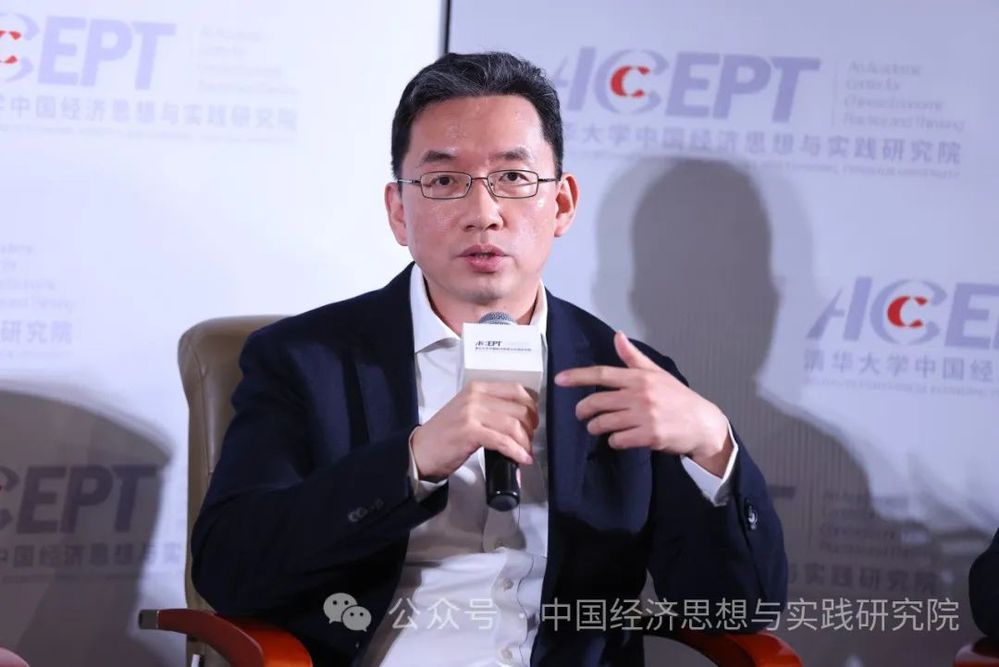Xu Gao: Financing platforms should be fully deployed to counter downward economic pressure
The following is a summary of Xu Gao's comments during a roundtable discussion at the 46th Tsinghua University Forum of China and the World Economy held at Tsinghua University, Beijing, on January 8, 2024. Xu is Chief Economist and Assistant President of the Bank of China International Co., Ltd. and Adjunct Professor of the National School of Development at Peking University.
On January 8, 2024, the 46th Tsinghua University Forum of China and the World Economy, hosted by Tsinghua University's Academic Center for Chinese Economic Practice and Thinking (ACCEPT) in partnership with the university's School of Social Sciences and School of Economics and Management Alumni Center, was held on campus. Chief Economist and Assistant President of the Bank of China International Co., Ltd. and Adjunct Professor of the National School of Development at Peking University, Xu Gao, participated in a roundtable discussion at the forum alongside other distinguished guests where he commented on the future outlook for China's economy.

On January 8, 2024, the 46th Tsinghua University Forum of China and the World Economy was held inside the Weilun Building's main lecture hall on campus at Tsinghua University's School of Economics and Management. The biannual event was hosted by Tsinghua University's Academic Center for Chinese Economic Practice and Thinking (ACCEPT) under the theme of China's 2024 Economic Outlook. During the forum's proceedings, Xu Gao, Chief Economist and Assistant President of the Bank of China International Co., Ltd. and Adjunct Professor of the National School of Development at Peking University, participated in a roundtable discussion alongside other distinguished guests where he commented on the future outlook for China's economy.
Xu Gao suggested that weak demand will represent the biggest risk to China's economic performance in 2024. Against the backdrop of frequent bursts of favorable tailwinds from policy moves, and despite strong expectations for policy adjustments at the macroeconomic level, the economic growth rate in 2024 is nonetheless projected to reach a level similar to that of 2023, somewhere still within the vicinity of 5%. The problems in the real estate market remain massive, with the underlying driver arising from the fact that China's traditional growth model is now being called into question. Even so, real estate and infrastructure have in fact been important factors underpinning the success of China's period of reform and opening-up over the past 40 years. This involved local governments borrowing money to build infrastructure and then paying off their debts by selling land, in this way realizing the social benefits of infrastructure investment – a magical formula that proved to be of the essence for China on its way to becoming an infrastructure powerhouse.
Xu also mentioned that addressing deflationary pressures at present will require measures such as increasing the fiscal deficit and the central bank’s monetization of debt. Financing vehicles for China's local governments can establish investment projects and generate added demand, which would entail the vigorous expansion of local government debt. The country’s domestic demand is insufficient, with domestic production meanwhile facing overcapacity, so there is hence a need to make use of financing platforms to spur on investment activity. During times when consumption is facing a slump, even though the rate of return may not be high, there will still be people willing to invest in infrastructure. Thus, China should make full use of its financing platforms and real estate business model to counter the downward pressure on the economy.




